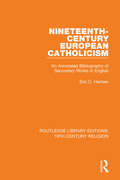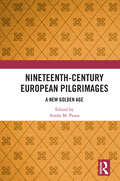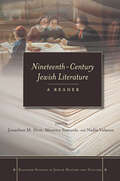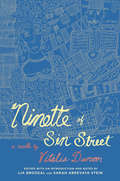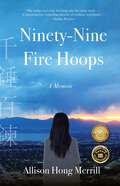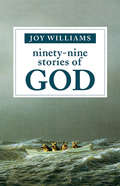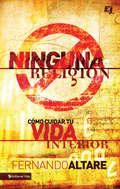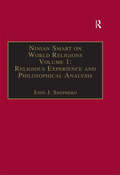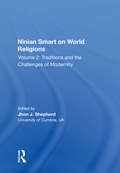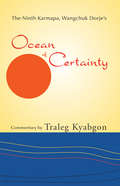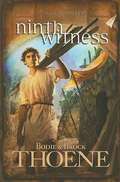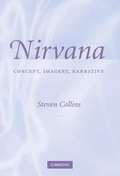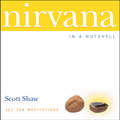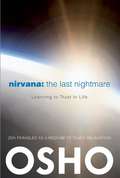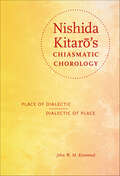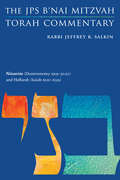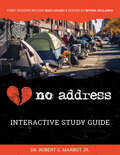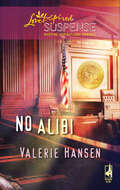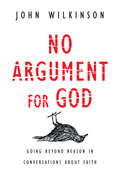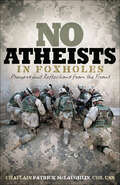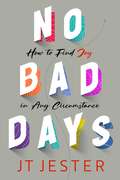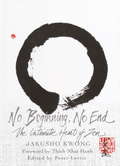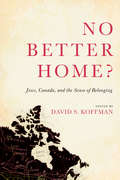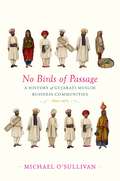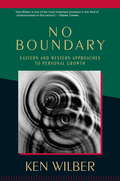- Table View
- List View
Nineteenth-Century European Catholicism: An Annotated Bibliography of Secondary Works in English (Routledge Library Editions: 19th Century Religion #8)
by Eric C. HansenIncluded in this bibliography, originally published in 1989, are books, pamphlets, dissertations, and articles from periodicals and collections, published for the most part since 1900, which present Catholic development in the nineteenth-century as its major theme. Each entry is annotated with the major idea or theme of the work as expressed by its author or editor. This title will be of interest to students of European History and Religious Studies.
Nineteenth-Century European Pilgrimages: A New Golden Age
by Antón M. PazosDuring the Nineteenth-Century a major revival in religious pilgrimage took place across Europe. This phenomenon was largely started by the rediscovery of several holy burial places such as Assisi, Milano, Venice, Rome and Santiago de Compostela, and subsequently developed into the formation of new holy sites that could be visited and interacted with in a wholly Modern way. This uniquely wide-ranging collection sets out the historic context of the formation of contemporary European pilgrimage in order to better understand its role in religious expression today. Looking at both Western Catholic and Eastern Orthodox Europe, an international panel of contributors analyse the revival of some major Christian shrines, cults and pilgrimages that happened after the rediscovery of ancient holy burial sites or the constitution of new shrines in locations claiming apparitions of the Virgin Mary. They also shed new light on the origin and development of new sanctuaries and pilgrimages in France and the Holy Land during the Nineteenth Century, which led to fresh ways of understanding the pilgrimage experience and had a profound effect on religion across Europe. This collection offers a renewed overview of the development of Modern European pilgrimage that used intensively the new techniques of organisation and travel implemented in the Nineteenth-Century. As such, it will appeal to scholars of Religious Studies, Pilgrimage and Religious History as well as Anthropology, Art, Cultural Studies, and Sociology.
Nineteenth-Century Jewish Literature: A Reader
by Jonathan M. Hess Maurice Samuels Nadia ValmanRecent scholarship has brought to light the existence of a dynamic world of specifically Jewish forms of literature in the nineteenth century—fiction by Jews, about Jews, and often designed largely for Jews. This volume makes this material accessible to English speakers for the first time, offering a selection of Jewish fiction from France, Great Britain, and the German-speaking world. The stories are remarkably varied, ranging from historical fiction to sentimental romance, to social satire, but they all engage with key dilemmas including assimilation, national allegiance, and the position of women. Offering unique insights into the hopes and fears of Jews experiencing the dramatic impact of modernity, the literature collected in this book will provide compelling reading for all those interested in modern Jewish history and culture, whether general readers, students, or scholars.
Ninette of Sin Street
by Sarah Abrevaya Stein Jane Kuntz Lia Brozgal Vitalis DanonPublished in Tunis in 1938, Ninette of Sin Street is one of the first works of Tunisian fiction in French. Ninette's author, Vitalis Danon, arrived in Tunisia under the aegis of the Franco-Jewish organization the Alliance Israélite Universelle and quickly adopted—and was adopted by—the local community. Ninette is an unlikely protagonist: Compelled by poverty to work as a prostitute, she dreams of a better life and an education for her son. Plucky and street-wise, she enrolls her son in the local school and the story unfolds as she narrates her life to the school's headmaster. Ninette's account is both a classic rags-to-riches tale and a subtle, incisive critique of French colonialism. That Ninette's story should still prove surprising today suggests how much we stand to learn from history, and from the secrets of Sin Street. This volume offers the first English translation of Danon's best-known work. A selection of his letters and an editors' introduction and notes provide context for this cornerstone of Judeo-Tunisian letters.
Ninety-Nine Fire Hoops: A Memoir
by Allison Hong MerrillAllison Hong is not your typical fifteen-year-old Taiwanese girl. Unwilling to bend to the conditioning of her Chinese culture, which demands that women submit to men&’s will, she disobeys her father&’s demand to stay in their faith tradition, Buddhism, and instead joins the Church of Jesus Christ of Latter-day Saints. Then, six years later, she drops out of college to serve a mission—a decision for which her father disowns her.After serving her mission in Taiwan, twenty-two-year-old Allison marries her Chinese-speaking American boyfriend, Cameron Chastain. But sixteen months later, Allison returns home to their Texas apartment and is shocked to discover that, in her two-hour absence, Cameron has taken all the money, moved out, and filed for divorce. Desperate for love and acceptance, Allison moves to Utah and enlists in an imaginary, unforgiving dating war against the bachelorettes at Brigham Young University, where the rules don&’t make sense—and winning isn&’t what she thought it would be.
Ninety-Nine Stories of God
by Joy WilliamsFrom "quite possibly America's best living writer of short stories" (NPR), Ninety-Nine Stories of God finds Joy Williams reeling between the sublime and the surreal, knocking down the barriers between the workaday and the divine. Pulitzer Prize and National Book Award finalist Joy Williams has a one-of-a-kind gift for capturing both the absurdity and the darkness of everyday life. In Ninety-Nine Stories of God, she takes on one of mankind's most confounding preoccupations: the Supreme Being. This series of short, fictional vignettes explores our day-to-day interactions with an ever-elusive and arbitrary God. It's the Book of Common Prayer as seen through a looking glass--a powerfully vivid collection of seemingly random life moments. The figures that haunt these stories range from Kafka (talking to a fish) to the Aztecs, Tolstoy to Abraham and Sarah, O. J. Simpson to a pack of wolves. Most of Williams's characters, however, are like the rest of us: anonymous strivers and bumblers who brush up against God in the least expected places or go searching for Him when He's standing right there. The Lord shows up at a hot-dog-eating contest, a demolition derby, a formal gala, and a drugstore, where he's in line to get a shingles vaccination. At turns comic and yearning, lyric and aphoristic, Ninety-Nine Stories of God serves as a pure distillation of one of our great artists.
Ninguna Religión: Como cuidar tu vida interior
by Fernando AltareEste libro te ayudará a encontrar en los evangelios conceptos revolucionarios que serán como un verdadero golpe a tus rutinas, transformando tu relación con el Creador. La vida abundante ofrecida por Jesús es mucho más que un listado de obligaciones y prohibiciones, es una emocionante realidad llena de frescura y aventura que sólo pueden disfrutar aquellos que no se dejan vencer por la religiosidad. Es curioso ver que los enfrentamientos más acalorados de Jesús, no los tuvo con los corruptos de su época, sino con los pastores y líderes de la iglesia de entonces. La religión suele hacernos perder el foco distorsionándonos la imagen de Dios, de los demás y de nosotros mismos. Muchos de nuestros conceptos y prácticas cristianas parten del error de pensar que Dios dijo algo que en realidad nunca dijo, alejándonos así de la esencia de la propuesta original de Jesús. La práctica diaria de nuestra fe puede estar infectada por la frialdad que surge de limitarse a cumplir con una serie de costumbres, por más buenas y cristianas que estas sean. Fernando Altare te ayudará a entender la fe práctica, la que importa, la real, la que vale la pena ser vivida. Después de una lectura y reflexión profunda de estas líneas no quedarás indiferente a la emocionante aventura que significa caminar con Jesús.
Ninian Smart on World Religions: Volume 1: Religious Experience and Philosophical Analysis (Ashgate Contemporary Thinkers on Religion: Collected Works)
by John J. ShepherdNinian Smart came to public prominence as the founding Professor of the first British university Department of Religious Studies in the late 1960s. His pioneering views on education in religion proved hugely influential at all levels, from primary schools to academic teaching and research. An unending string of publications, many of them accessible to the general public, sustained a reputation that became worldwide. Here, for the first time, a selection of Ninian Smart's wide-ranging writings is organised systematically under a set of categories which both comprehend and also illuminate his varied output over a career spanning half a century. The editor, John Shepherd, was Principal Lecturer in Religion and Philosophy at the University of Cumbria. He first met Smart as a postgraduate student, and recently helped establish the Ninian Smart Archive at the University of Lancaster.
Ninian Smart on World Religions: Volume 2: Traditions and the Challenges of Modernity (Ashgate Contemporary Thinkers On Religion: Collected Works)
by John J. ShepherdNinian Smart came to public prominence as the founding Professor of the first British university Department of Religious Studies in the late 1960s. His pioneering views on education in religion proved hugely influential at all levels, from primary schools to academic teaching and research. An unending string of publications, many of them accessible to the general public, sustained a reputation that became worldwide. Here, for the first time, a selection of Ninian Smart's wide-ranging writings is organised systematically under a set of categories which both comprehend and also illuminate his varied output over a career spanning half a century. The editor, John Shepherd, was Principal Lecturer in Religion and Philosophy at the University of Cumbria. He first met Smart as a postgraduate student, and recently helped establish the Ninian Smart Archive at the University of Lancaster.
Ninth Karmapa, Wanchuk Dorje’s Ocean of Certainty
by Traleg KyabgonTraleg Kyabgon Rinpoche's commentary to the sixteenth century work Pith Instructions of Coemergent Wisdom, Entitled the Profound Essence of the Ocean of Certainty, by the Ninth Karmapa, Wangchuk Dorje, provides meditators with an overview of the path leading to the realization of mahamudra, the self-liberated and all-encompassing nature of reality. Beginning with ngondro practice, Traleg Rinpoche guides students through the conditions needed to fully integrate the practice, along with instructions for shamatha and vipashyana meditation, which includes visualizations and exercises. A section devoted to strengthening practice lays out common pitfalls and wrong views and how to avoid them. Finally, Rinpoche teaches on the four yogas of mahamudra one-pointedness nonconceptuality, one-flavoredness, and nonmeditation and the ground, path, and fruition of mahamudra in relation to the individual practitioner.
Ninth Witness (A.D. Chronicles #9)
by Bodie Thoene Brock ThoeneRiots and revolts spread across Judea. Twelve-year-old Yeshua is in Jerusalem--"about his Father's business" in the Temple--as his panic-stricken parents search for him amidst the chaos. Readers will enjoy reading this interesting story from Christ's youth. This is the ninth book in the A.D. Chronicles series. Includes historical maps and a discussion guide for individual or group study.
Nirvana
by Steven CollinsThe idea of nirvana (Pali nibbÄuna) is alluring but elusive for non-specialists and specialists alike. Offering his own interpretation of key texts, Steven Collins explains the idea in a new, accessible way - as a concept, as an image (metaphor), and as an element in the process of narrating both linear and cyclical time. Exploring nirvana from literary and philosophical perspectives, he argues that it has a specific role: to provide 'the sense of an ending' in both the systematic and the narrative thought of the Pali imaginaire. Translations from a number of texts, including some dealing with past and future Buddhas, enable the reader to access source material directly. This book will be essential reading for students of Buddhism, but will also have much to teach anyone concerned with Asia and its religions, or indeed anyone with an interest in the ideas of eternal life or timelessness.
Nirvana in a Nutshell: 157 Zen Meditations
by Scott ShawMeditations to help you stop seeking inner peace—and start experiencing it instead. Nirvana is not to be found in the fulfillment of endless desires, the analysis of profound thoughts, or even hours, days, or years of meditative contemplation. In fact, it is the very act of seeking to obtain happiness, peace, and enlightenment that keeps them out of reach. Nirvana in a Nutshell offers 157 Zen meditations to help you discover what you might be doing (or not doing) in your life to sabotage your goal of reaching inner peace, your own personal paradise. But, as Scott Shaw explains, a desire for Nirvana is like any other desire—a cause of suffering. Let go of the quest and become that which you truly seek and you will find your own Nirvana.
Nirvana: The Last Nightmare
by Osho Osho International FoundationNirvana has become an idealized word associated with the juxtaposition of a cult rock celebrity who died before his time and a vague new age version of Eastern religion. An altered state to be hoped for, but likely unattainable, reinforcing that all too familiar uneasiness associated with never being able to have what we truly desire in life.Osho masterfully brings this internal state of tension to the surface and through the use of five beautiful Zen stories examines, unravels and reveals the meaning of nirvana. By absorbing without interpreting, making a decision without worrying if it is the right one, or surrendering to each moment, it is possible to come to a point where we simply drop through the manifestations of the ego. In that moment, living an ordinary life becomes an extraordinary delight.
Nishida Kitaro's Chiasmatic Chorology: Place of Dialectic, Dialectic of Place (World Philosophies)
by John W. KrummelNishida Kitaro (1870–1945) is considered Japan's first and greatest modern philosopher. As founder of the Kyoto School, he began a rigorous philosophical engagement and dialogue with Western philosophical traditions, especially the work of G. W. F. Hegel. John W. M. Krummel explores the Buddhist roots of Nishida's thought and places him in connection with Hegel and other philosophers of the Continental tradition. Krummel develops notions of self-awareness, will, being, place, the environment, religion, and politics in Nishida's thought and shows how his ethics of humility may best serve us in our complex world.
Nitsavim: The JPS B'nai Mitzvah Torah Commentary (JPS Study Bible)
by Rabbi Jeffrey K. SalkinThe JPS B’nai Mitzvah Torah Commentary shows teens in their own language how Torah addresses the issues in their world. The conversational tone is inviting and dignified, concise and substantial, direct and informative. Each pamphlet includes a general introduction, two model divrei Torah on the weekly Torah portion, and one model davar Torah on the weekly Haftarah portion. Jewish learning—for young people and adults—will never be the same. The complete set of weekly portions is available in Rabbi Jeffrey K. Salkin’s book The JPS B’nai Mitzvah Torah Commentary (JPS, 2017).
No Address: An Interactive Study Guide
by Dr. Robert G. Marbut Jr.A four-session interactive Bible study, based on the documentary Americans with No Address, that examines the biblical response to people experiencing homelessness. Homelessness is not an &“issue&”; it&’s an opportunity for the church to love our neighbors. In this four-session interactive Bible study, we examine what Scripture has to say on the topic. A companion to the documentary Americans with No Address and the full-length theatrical movie No Address (starring Ashanti, William Baldwin, Beverly D&’Angelo, and Xander Berkeley), this study teaches participants: The root causes of different types of homelessness. How to engage rather than enable. The importance of collaboration among existing agencies. How to mobilize their church to follow Jesus&’ call to serve. Each session includes: Facts, true stories, and background about the people who experience homelessness in America. QR code for quick link to online videos. Discussion questions for churches and small groups. Perspective from the Bible. &“Go and Do&” action steps. Ideas for further resources. Prayer prompts and reflection questions. The government can&’t solve homelessness alone. The nonprofit sector can&’t solve it alone. But neighbors loving neighbors, working together, can make a difference for the people who are experiencing homelessness in America. No Address equips Christians to lead the way.
No Alibi
by Valerie HansenIntimidation takes a dangerous toll on a woman and the man who vows to protect her in a riveting courtroom thriller from the USA Today–bestselling author.A finalist for the New England “Reader’s Choice Bean Pot Award” from New England RWAJuror Julie Ann Jones simply didn’t expect the life on the line to be her own. Courtroom tension is running high during a scandal-packed murder case. As the trial heats up, a series of “accidents” begins targeting the jurors—especially Julie Ann. There are gunshots at her beauty salon. A prowler is spotted at her home. Through it all, fellow juror Smith Burnett gives her the courage to continue. But will she find the courage to give Smith her heart?
No Argument for God: Going Beyond Reason in Conversations About Faith
by John WilkinsonNo Argument for God
No Atheists in Foxholes: Reflections and Prayers from the Front
by Patrick McLaughlinExperience gripping wartime stories and honest prayers by this Camp David chaplain now serving in Iraq. When words mean less and less, but money talks more and more; when blasphemy is a best seller, and eternal war has replaced hopeful diplomacy; in times like these is prayer even possible? Patrick J. McLaughlin thinks so. McLaughlin is an active duty Navy Chaplain who has ministered to heads of state and to soldiers living and dying in the heat of Iraq. No Atheists in Foxholes assembles Chaplain McLaughlin's experiences and prayers from e-mails, private notes, and personal conversations that take us real-time into realms of duty and spirit: from the quiet darkness of his infant son's New England bedroom on September 11, 2001, to the bomshelled medical tents and blistered Army Humvees of Anbar Province. Chaplain McLaughlin believes that prayer is not only possible, but critical. "We must all learn to pray for peace," he says, "and then become an answer to that prayer."
No Bad Days: How to Find Joy in Any Circumstance
by JT JesterIn No Bad Days, JT Jester shares his against-all-odds story of overcoming countless physical and learning challenges to help others find joy in any circumstance and understand that there are no bad days—only hard ones. By the time JT Jester was three years old, he had spent 250 days in the hospital, and he endured sixteen major surgeries before he was sixteen. Diagnosed with VATER/VACTERL Syndrome, a rare combination of several birth defects. JT&’s life was anything but easy. On top of his physical challenges, he suffered dyslexia and short-term memory loss, which made learning nearly impossible for him. Yet JT pushed past his physical and educational roadblocks to achieve what many people told him he would never do—learn to read, graduate from high school, attend college, and become a successful motivational speaker, influential podcast host, and bestselling author. In No Bad Days, JT details the incredible story of how he overcame what seemed like insurmountable odds and shares the many invaluable lessons he has learned throughout his life in the hope that others might reach their full potential. These lessons include how to: Find Your Tribe, Pull Off the Label, Stretch Yourself, Listen to Others, and Learn to Fall. JT&’s improbable life story is evidence that regardless of the mental and physical challenges you might face, you can defy the odds to create the life you want and accomplish the things you&’ve only dreamed about. His remarkable journey is all the proof you need. Through his story, and the inspiring stories of others, JT Jester shows readers how to find joy in any circumstance and proves that there are really no bad days—only hard ones.
No Beginning, No End
by Jakusho Kwong RoshiIn No Beginning, No End, Zen master Jakusho Kwong-roshi shows us how to treasure the ordinary activities of our daily lives through an understanding of simple Buddhist practices and ideas. The author's spontaneous, poetic, and pragmatic teachings--so reminiscent of his spiritual predecessor Shunryu Suzuki (Zen Mind, Beginner's Mind)--transport us on an exciting journey into the very heart of Zen and its meaningful traditions. Because Kwong-roshi can transmit the most intimate thing in the most accessible way, we learn how to ignite our own vitality, wisdom, and compassion and awaken a feeling of intimacy with the world. It is like having a conversation with our deepest and wisest self.Jakusho Kwong-roshi was originally inspired to study Zen because of zenga, the ancient art of Zen calligraphy. Throughout this book he combines examples of his unique style with less well-known stories from the Zen tradition, personal anecdotes--including moving and humorous stories of his training with Suzuki-roshi--and his own lucid and inspiring teachings to draw all readers into this intimate expression of the enlightening world of Zen: the world of who we are.From the Hardcover edition.
No Better Home?: Jews, Canada, and the Sense of Belonging
by David S. KoffmanThis book begins with an audacious question: Has there ever been a better home for Jews than Canada? By certain measures, Canada might be the most socially welcoming, economically secure, and religiously tolerant country for Jews in the diaspora, past or present. No Better Home? takes this question seriously, while also exploring the many contested meanings of the idea of "home." Contributors to the volume include leading scholars of Canadian Jewish life as well as eminent Jewish scholars writing about Canada for the first time. The essays compare Canadian Jewish life with the quality of life experienced by Jews in other countries, examine Jewish and non-Jewish interactions in Canada, analyse specific historical moments and literary texts, reflect deeply personal histories, and widen the conversation about the quality and timbre of the Canadian Jewish experience. No Better Home? foregrounds Canadian Jewish life and ponders all that the Canadian experience has to teach about Jewish modernity.
No Birds of Passage: A History of Gujarati Muslim Business Communities, 1800–1975
by Michael O’SullivanA sweeping account of three Gujarati Muslim trading communities, whose commercial success over nearly two centuries sheds new light on the history of capitalism, Islam, and empire in South Asia.During the nineteenth century, three Gujarati Muslim commercial castes—the Bohras, Khojas, and Memons—came to dominate Muslim business in South Asia. Although these communities constitute less than 1 percent of South Asia’s Muslim population, they are still disproportionately represented among the region’s leading Muslim-owned firms today. In No Birds of Passage, Michael O’Sullivan argues that the conditions enabling their success have never been understood, thanks to stereotypes—embraced equally by colonial administrators and Muslim commentators—that estrange them from their religious identity. Yet while long viewed as Hindus in all but name, or as “Westernized” Muslims who embraced colonial institutions, these groups in fact entwined economic prerogatives and religious belief in a distinctive form of Muslim capitalism.Following entrepreneurial firms from Gujarat to the Hijaz, Hong Kong, Mombasa, Rangoon, and beyond, O’Sullivan reveals the importance of kinship networks, private property, and religious obligation to their business endeavors. This paradigm of Muslim capitalism found its highest expression in the jamaats, the central caste institutions of each community, which combined South Asian, Islamicate, and European traditions of corporate life. The jamaats also played an essential role in negotiating the position of all three groups in relation to British authorities and Indian Muslim nationalists, as well as the often-sharp divisions within the castes themselves.O’Sullivan’s account sheds light on Gujarati Muslim economic life from the dawn of colonial hegemony in India to the crisis of the postcolonial state, and provides fascinating insights into the broader effects of capitalist enterprise on Muslim experience in modern South Asia.
No Boundary: Eastern and Western Approaches to Personal Growth (Whole Mind Ser.)
by Ken WilberA simple yet comprehensive guide to the types of psychologies and therapies available from Eastern and Western sources. Each chapter includes a specific exercise designed to help the reader understand the nature and practice of the specific therapies. Wilber presents an easy-to-use map of human consciousness against which the various therapies are introduced and explained. This edition includes a new preface.
